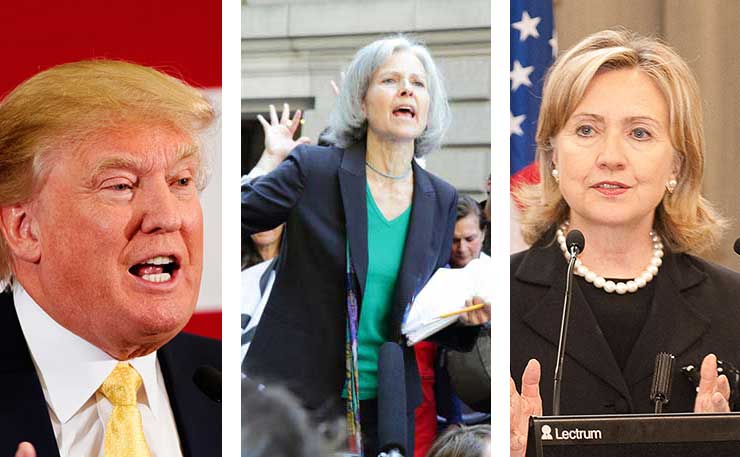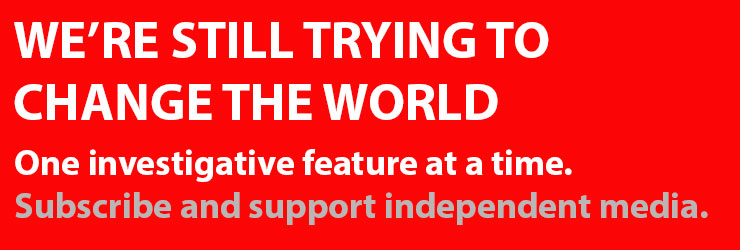There is, believe it or not, more than two candidates in the race for the US presidency. Dr Lissa Johnson weighs up two, and introduces you to a third.
The US election is just days away. After a long and surreal election campaign the sobering reality of a Trump or Clinton presidency will soon be sinking in.
We will be drinking the US electorate’s chosen poison. I feel queasy already.
Although we can’t physically vote in Australia, we have been voting with our guts. Australian media have covered the US election campaign almost twice as intensively as our own election earlier this year.
We seem to realise that the outcome of this election affects us all. As Noam Chomsky has observed, “decent human survival” is at stake.
Some of us are no doubt anxious about this. A recent poll by The American Psychological Association (APA) found that the 2016 election has been a source of “very significant or somewhat significant” stress for over half of Americans surveyed.
In an effort to ease this stress, the APA website reassures us that, “Whatever happens on November 8th, life will go on.” Unless you live in Syria, Yemen, Palestine, Afghanistan, Somalia, Iraq or Libya, perhaps.
But forgetting the lives of the people in these places (we’re good at that), let’s hope that the APA is right, at least where our own lives are concerned.
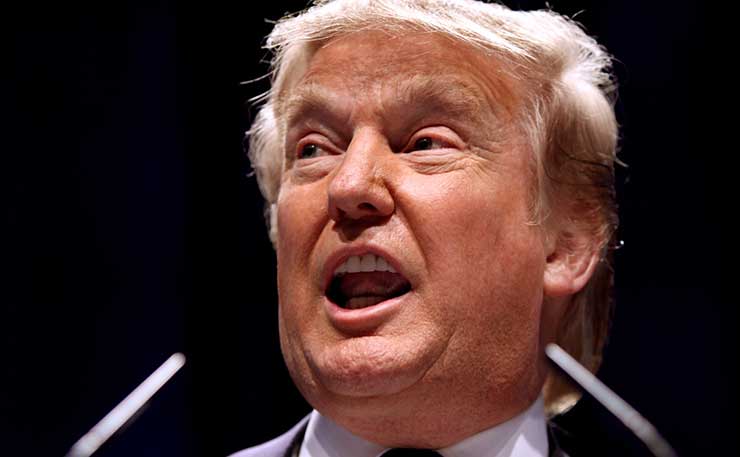
Even focussing exclusively on ourselves (we’re good at that too), if elected Trump has promised to cancel the Paris agreement, scrap the Clean Power Plan, abandon subsidies for renewable energy, weaken a range of environmental protections, and expand the fossil fuel industry.
This would cause an estimated 4.4 – 8.5 degrees of global warming this century.
Just two degrees would likely drive one-fifth of the world’s population from their coastal homes and place major cities such as New York and London under water. Four degrees is expected to cause tens of thousands of deaths annually in the US alone, submerge land currently home to an estimated 470 to 760 million people, and lock-in as much as 50m of sea level rise in centuries to come.
No wonder people are stressed. That’s frightening. And no wonder people have focussed on Trump’s misogyny instead. That’s slightly less frightening. It may be vile, but it won’t annihilate life on earth.
For her part, Clinton promises more war, championing a no-fly zone over Syria as a start.
Syria. That poor country that has been the latest target of US regime change masquerading as civil war, using jihadists masquerading as moderate opposition (for a wonderful scholarly work on the subject see The Dirty War on Syria by Dr Tim Anderson, Senior Lecturer in Political Economy at the University of Sydney).
Trump has warned that Clinton’s no-fly-zone over Syria could spark war with Russia.
Russia. The nuclear armed nation that is currently fighting US-Saudi-Qatari-backed terrorists on its doorstep, in Syria.
But that’s just nutty Trump-talk right? The man will say anything. Except that numerous credible observers are sounding essentially the same alarm.
General Joseph Dunford, for instance, Chair of the Joint Chiefs of Staff, said in September that Clinton’s no-fly zone over Syria would “require us to go to war against Syria and Russia,” adding, “That’s a pretty fundamental decision that certainly I’m not going to make.”
In an open letter to the Obama Administration in October, a group of former intelligence and military officials warned that “direct aggression against Damascus and the Syrian Army” (such as a no-fly zone) invites “full-scale war” with Russia.
More recently the Director of National Intelligence James Clapper added his voice to such concerns.
Most agree that full-scale war with Russia would be disastrous, and possibly thermonuclear. Professor of Russian and European Politics at the University of Kent, Richard Sakwa, says that it would be a “war to end all wars, since there would be no-one left to fight”.
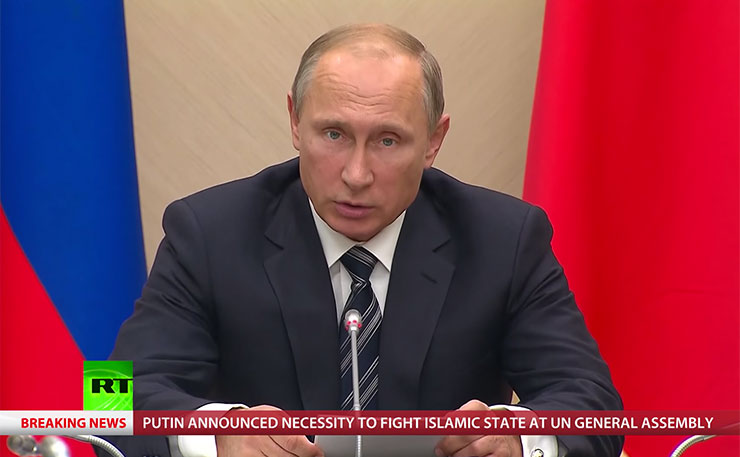
Former US Secretary of Defense and Professor Emeritus at Stanford University, William Perry, agrees, and argues that the threat of nuclear war is greater now than it ever was during the cold war. He is currently running a program to “educate people on how serious the problem is”.
Another reputable source, Professor Emeritus of Russian Studies and Politics at Princeton and New York Universities, Stephen Cohen, says that “we should be ‘shocked’ less by Donald Trump’s sex talk or by Hillary Clinton’s misdeeds as secretary of state than by the entire political-media establishment’s indifference to Washington’s drift toward war with Russia”.
Professor Cohen has been following Clinton’s zeal for a Syrian no-fly zone for a while. Back in 2015 he said, “anyone who advocates a no-fly zone over Syria in these circumstances, if they are at all intelligent, and we can’t be sure they are… is essentially proposing war with Russia. Mrs Clinton belongs among these people”.
Still, surely Clinton’s not completely mad. She’s probably just electioneering, to win Republican votes. She’ll listen to General Dunford once she’s elected, right? Dunford does, after all, represent the most senior leaders of all four branches of the US armed forces, whose job it is to advise the President on matters of war. Sense will certainly prevail if she becomes President. Surely?
Clinton, however, has a history of ignoring the Joint Chiefs of Staff. And senior intelligence officials.
The Joint Chiefs of Staff “strongly opposed” attacking Libya, for instance, when Clinton was Secretary of State pushing for a no-fly zone over the country. The Joint Chiefs warned that this would result in al-Qaeda and other militants taking over Libya.
The Defense Intelligence Agency offered similar advice, finding no evidence for the claims of imminent genocide which Clinton used to justify her NATO mission.
Clinton pressed ahead regardless, causing untold death and destruction for Libyan people, and militant takeover, as she had been warned.
If a ‘no-fly zone’ sounds like a nice way to create ‘safe havens’ in Syria, which Clinton claimed at the last presidential debate, consider her more detailed private explanation in 2013, made public recently by Wikileaks:
“To have a no-fly zone you have to take out all of the air defense, many of which are located in populated areas… So our missiles, even if they are standoff missiles so we’re not putting our pilots at risk — you’re going to kill a lot of Syrians. So all of a sudden this intervention… becomes an American and NATO involvement where you take a lot of civilians.”
In Libya it led to a “jamboree of aerial destruction”.
Why would Clinton knowingly propose such a thing? Again.
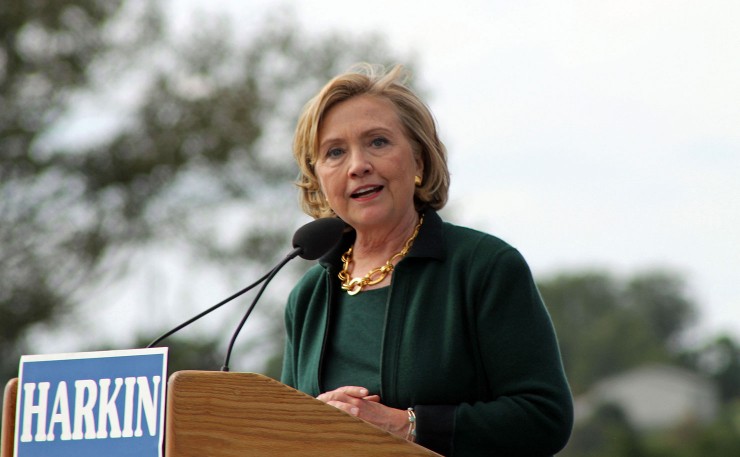
Clinton is said to be ideologically aligned with an influential contingent in the foreign policy and military-intelligence elite, including NATO-aligned think tanks, who are collectively gunning for more aggressive US foreign policy across the board. Professor Cohen has called this contingent the ‘war party’.
As Cohen points out with respect to Syria, the ‘war party’ has been at odds with the Obama administration over Obama’s more restrained tendencies, such as ceasefires in Syria, resisting a no-fly zone, and rapprochement with Iran (his drone program they no doubt approve).
Clinton, on the other hand, promises to be a more willing partner.
The war party’s agenda, some say, includes regime change in Russia. As recently as a few weeks ago a prominent member of a CIA-aligned ‘soft power’ unit, the National Endowment for Democracy, called on the US Government to “’summon the will’ to engineer the overthrow of Russian President Vladimir Putin”.
Long-time investigative reporter Robert Parry calls this a “nutty neocon… group think” in which “the foreign policy elites, coordinating with the major US news media, are… [on a]march of folly [towards]military escalation in Syria, a take-down of Iran, and a showdown with nuclear-armed Russia”.
Parry, along with others such as Professor Cohen and professor Gary Leupp of Tufts University, to name a few, see the current demonization of Vladmir Putin as part of this march. They fear that its intent is to pave the psychological way for war.
They are right that demonizing Putin is precisely what is required, psychologically, to prepare a population for war. Let’s hope that they are wrong about the underlying intent.
But surely no-one is really angling for regime change in Russia. Mere group-think can’t push otherwise sane people to do truly insane things, can it?
In short, yes. The Bay of Pigs taught us that. It also taught us about the critically protective role of disagreement and dissent.
Whether the war party’s group-think post-election will involve confrontation with Russia or just more dirty, dishonest proxy war and death, odds are that Clinton will be in charge.
Most Australians are hoping that she is, crossing their fingers against a Brexit-style Trump victory. Eight in 10 of us would be concerned if Trump were to win the election.
Noam Chomsky agrees. Despite also being concerned about the threat of nuclear war, he argues that Clinton is still the lesser of the two evils.
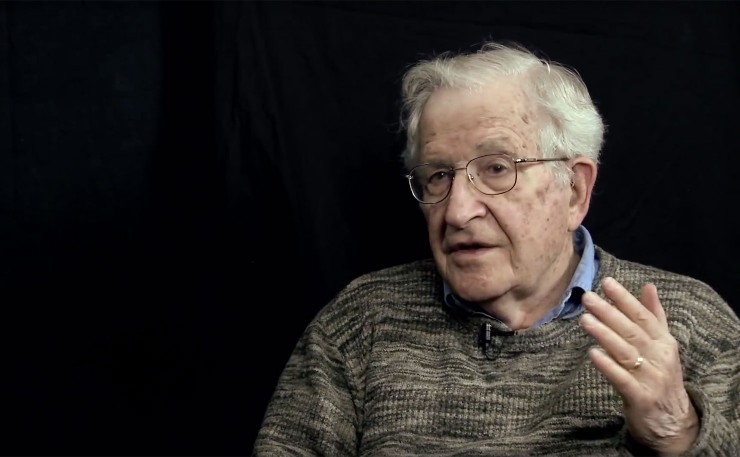
He reasons that a Trump presidency would be a “virtual death knell for the species” on climate grounds alone. He has said, “If I were in a swing state… I would vote against Trump. And by arithmetic that means hold your nose and vote for Clinton.”
Chomsky’s advocacy of lesser evil voting has provoked disagreement, however, among some commentators on the left.
An article in Counterpunch, for instance, refutes Chomsky’s eight-point argument for lesser evilism, noting, “if Trump is elected and the Maldives is covered by four feet of water, or Clinton is elected and the Maldives is covered by only two feet of water, it won’t make much difference to the Maldives”.
In an article titled Why I Support Dr Jill Stein For President, Pulitzer Prize winning journalist and author Chris Hedges explains his rejection of lesser evilism and his intention to vote for Green Party nominee Jill Stein.
He says that Stein, “unlike Bernie Sanders, knows that this movement [for people, the planet and peace]will never be realized within the Democratic Party or by paying deference to the power elites, the Israel lobby or the arms industry and the military establishment. She grasps that until we name and destroy the evil of militarism and imperialism, genuine social and political reform, indeed democracy, is impossible”.
Hedges has also argued that voting for Clinton will only fuel the Trump phenomenon in the long run. More neoliberalism under Clinton, he says, will exacerbate the disenfranchisement, despair and economic pain that has fuelled Trump’s rise in the first place, creating more xenophobic nationalism down the track.
Hedges has a point. Psychologically, economic scarcity does fan the flames of group-based dynamics such as racism, nationalism and antagonism towards other social and cultural groups.
But can we afford the luxury of such a long-term view?
Climate change is happening now. This is the 11th hour. What the next president of the United States does will alter the course of human history for millennia to come.
Climate catastrophe is assured under Trump. He must be stopped. Under Clinton, the lesser evil logic goes, humanity at least stands some chance.
Or does it? Clinton believes that those seeking to keep fossil fuels in the ground should “get a life”. She has also recently selected a fracking advocate and oil and mining industry insider to oversee her appointments to the White House.

In Jill Stein’s view, “You have differences around the margins, but… the differences are not enough to save your life, to save your job, or to save the planet.”
Is Stein right? Or should American voters hold their breath, along with their nose, vote Clinton, and roll the planetary dice.
Could you do it?
If you were voting in the US election could you take a chance on Clinton, with her nutty neocon penchant for violent regime change and her empty words on climate?
Or would you cast your vote for a third party candidate, knowing that Trump might ride your choice all the way to the White House? Death-knell-to-the species-Trump, with all the racism, misogyny and proto-fascism that he would bring?
Fortunately we in Australia aren’t forced to make that cruel choice. We are off the lesser-evil hook. Our mere opinions and conversations won’t register on the ballots in swing states such as Florida and Ohio. We can think and discuss whomever we like.
Why, then, have we been behaving as though we are going to the polls on November 8th? As though our utterances will count for votes? Why have we been holding our nose, along with America, and confining our analysis to Clinton and Trump? Restricting ourselves to the junk politics of the battle between small differences.
Why aren’t we talking about third party candidates just as Jill Stein, with her refreshingly dissenting positions on climate change and war? Especially given the odiousness and dangerousness of the major party players.
With a final presidential debate that devoted just 2 seconds to global warming, why don’t we at least reference the Green Party nominee, and her platform of emergency transition from fossil fuels?
Do we think that we will cause a Trump victory by so much as looking at Jill Stein?
It is curious that in this election campaign, fought so hard on gender, an intelligent, eloquent, progressive woman such as Stein has been so comprehensively marginalised, trivialised and ignored.
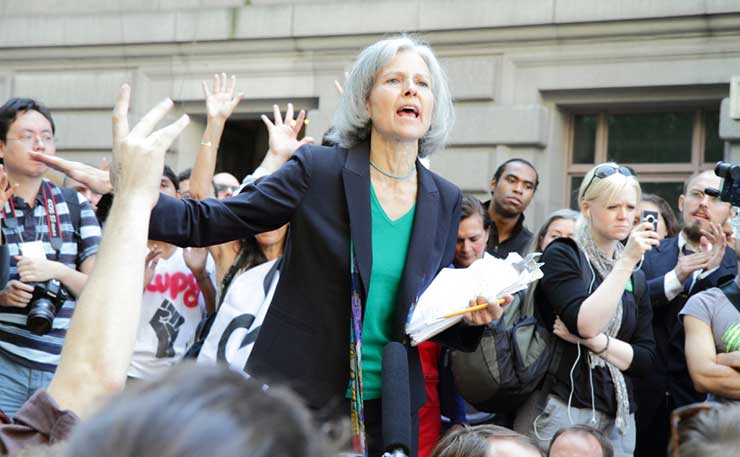
In Australian and US mainstream media, independent media, social media, and in casual conversation Stein has been comprehensively dwarfed by the gargantuan X-Factor-esque battle to crown the most obnoxious, offensive, reprehensible candidate the greater evil. And hasn’t the competition been stiff?
The few articles that do mention Stein focus largely on her low polling and the futility of third parties rather than her policies or her platform. As Stein herself has said, this fosters the sense that “resistance is useless”.
Commentary that does mention Stein’s policies is often dismissive, lacking detail, or merely smears her, for instance with distortions of tangential issues, like the claim that she is an anti-vaxxer, which she is not. In one interview PBS NewsHour censored Stein’s answers in such as way as to render her responses meaningless and inane. It’s worth a watch.
Even ostensibly independent, alternative, progressive news media outlets such as Salon, Alternet and Common Dreams have disparaged Stein and her supporters as “simple”, “useless” and “naïve”.
These articles, however, miss the point. They can’t see past the oval office.
Stein has her sights on wider horizons, as do other independent candidates such as Gloria La Riva of the Party For Socialism and Liberation or Alyson Kennedy of the Socialist Workers Party (Sanders wasn’t the only ‘socialist’ in the race).
These candidates, their parties and their base are aiming to garner movements for social change.
Chris Hedges says, “I support Stein because she understands that this is primarily about building a global movement, not about participating in an election… And all the pundits who tell us not to waste our vote miss the point. It is time to stop playing the game”.
A game in which, as he points out, rather than a contest between genuinely opposing ideologies, “Campaigns are entertainment and commercial vehicles [for]manufactured political personalities… We vote for the candidate who makes us ‘feel’ good about him or her.”
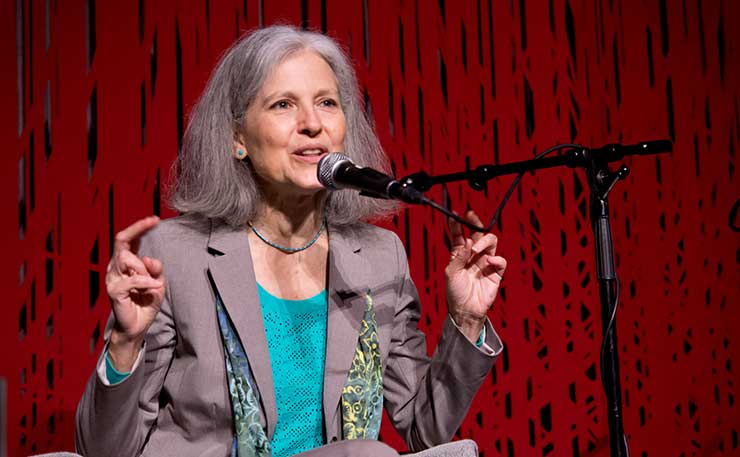
In an interview with Hedges, Stein said, “The powers that be would love our movements to remain divided and conquered… The challenge of our era is to bring our movements together so we’re working with a common agenda and to some extent a common strategy. That’s what political parties can do. A political party can help provide that conversation so that the movements can articulate and develop our agenda, our priorities.”
Provide conversation… articulate priorities… through discussion, critical thinking and debate.
Which, incidentally, is the antidote to group-think, the underlying psychological breeding ground for more climate change and war.
Declining to discuss candidates such as Stein under the psychological spell of lesser evilism, however, dooms progressive movements to fail. When lesser evil voting begets lesser evil thinking, progressive leaders and their ideas are kept not only from power, but from public consciousness and debate.
When we refuse to entertain the very idea of change, or the mere discussion of change, its reality becomes increasingly remote.
Next week, I will discuss why we have been so collectively susceptible to lesser evil thinking this US election, despite a public thirst for change, and the implications for our collective moral reasoning going forward. I will examine the moral myopia that a restricted ‘Trump/Clinton’ focus has spawned, with Trump’s proto-fascism as a moral dead weight dragging our moral reasoning down.
I will look at the flow-on effects for freedom of speech, Wikileaks, suppression of information and manufacturing consent for war.
Meanwhile, for some welcome moral relief you can watch Jill Stein’s response to all three presidential debates here. She explains her political platform with Chris Hedges here and talks about political medicine and the power of third parties with Abby Martin here. On RT, Clinton’s bogey-man-alt-right-Putin-Trump propaganda machine, you will find plenty of respectful rather than dismissive coverage of Jill Stein, here.
Perhaps that’s the real reason Clinton hates RT.
As Stein says, she is an inconvenient truth for Clinton’s campaign.
Donate To New Matilda
New Matilda is a small, independent media outlet. We survive through reader contributions, and never losing a lawsuit. If you got something from this article, giving something back helps us to continue speaking truth to power. Every little bit counts.

